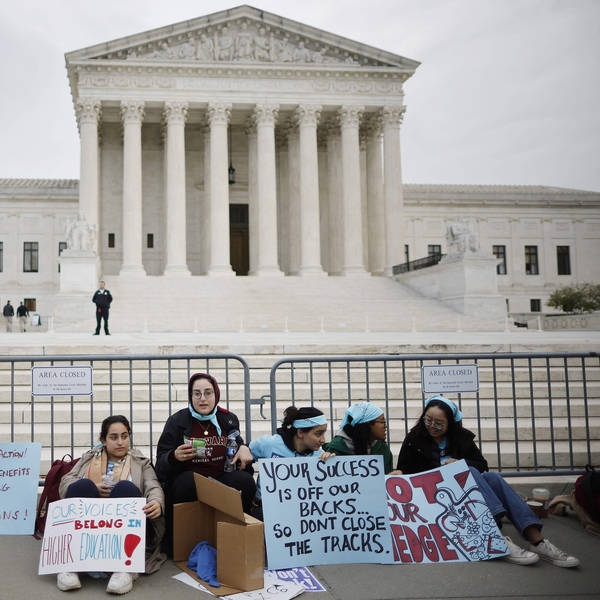
Two Indicators: After Affirmative Action & why America overpays for subways
Two stories today.
First, as we start to understand post-affirmative action America, we look to a natural experiment 25 years ago, when California ended the practice in public universities. It reshaped the makeup of the universities almost instantly. We find out what happened in the decades that followed.
Then, we ask, why does it cost so much for America to build big things, like subways. Compared to other wealthy nations, the costs of infrastructure projects in the U.S. are astronomical. We take a trip to one of the most expensive subway stations in the world to get to the bottom of why American transit is so expensive to build.
This episode was hosted by Adrian Ma and Darian Woods. It was produced by Corey Bridges, and engineered by Robert Rodriguez and Katherine Silva. It was fact-checked by Sierra Juarez. Viet Le is the Indicator's senior producer. And Kate Concannon edits the show. Alex Goldmark is our executive producer.
Help support Planet Money and get bonus episodes by subscribing to Planet Money+ in Apple Podcasts or at plus.npr.org/planetmoney.
Learn more about sponsor message choices: podcastchoices.com/adchoices
NPR Privacy Policy
First, as we start to understand post-affirmative action America, we look to a natural experiment 25 years ago, when California ended the practice in public universities. It reshaped the makeup of the universities almost instantly. We find out what happened in the decades that followed.
Then, we ask, why does it cost so much for America to build big things, like subways. Compared to other wealthy nations, the costs of infrastructure projects in the U.S. are astronomical. We take a trip to one of the most expensive subway stations in the world to get to the bottom of why American transit is so expensive to build.
This episode was hosted by Adrian Ma and Darian Woods. It was produced by Corey Bridges, and engineered by Robert Rodriguez and Katherine Silva. It was fact-checked by Sierra Juarez. Viet Le is the Indicator's senior producer. And Kate Concannon edits the show. Alex Goldmark is our executive producer.
Help support Planet Money and get bonus episodes by subscribing to Planet Money+ in Apple Podcasts or at plus.npr.org/planetmoney.
Learn more about sponsor message choices: podcastchoices.com/adchoices
NPR Privacy Policy
